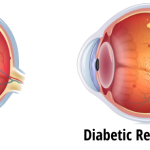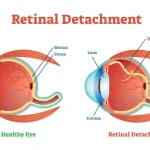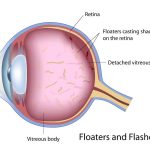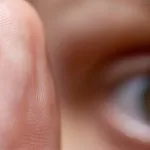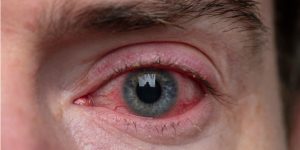
Eye Allergies
Allergies occur when your immune system reacts to a foreign substance — such as pollen, dust, bee venom or pet dander — that doesn’t cause a reaction in most people.
Your immune system produces substances known as antibodies. Some antibodies protect you from unwanted invaders that could make you sick or cause infection.
When you have allergies, your immune system makes antibodies that identify a particular allergen as harmful, even though it isn’t. When you come into contact with the allergen, your immune system’s reaction can inflame your skin, sinuses, airways or digestive system.
The severity of allergies varies from person to person and can range from minor irritation to anaphylaxis — a potentially life-threatening emergency. While most allergies can’t be cured, a number of treatments can help relieve your allergy symptoms.
Symptoms
Allergy symptoms depend on the substance involved and can involve the airways, sinuses and nasal passages, skin, and digestive system. Allergic reactions can range from mild to severe. In some severe cases, allergies can trigger a life-threatening reaction known as anaphylaxis.
Hay fever, also called allergic rhinitis, may cause:
- Sneezing
- Itching of the nose, eyes or roof of the mouth
- Runny, stuffy nose
- Watery, red or swollen eyes (conjunctivitis)
A food allergy may cause:
- Tingling mouth
- Swelling of the lips, tongue, face or throat
- Hives
- Anaphylaxis
An insect sting allergy may cause:
- A large area of swelling (edema) at the sting site
- Itching or hives all over your body
- Cough, chest tightness, wheezing or shortness of breath
- Anaphylaxis
A drug allergy may cause:
- Hives
- Itchy skin
- Rash
- Facial swelling
- Wheezing
- Anaphylaxis
Atopic dermatitis, an allergic skin condition also called eczema, may cause skin to:
- Itch
- Redden
- Flake or peel
Anaphylaxis
Some types of allergies, including allergies to foods and insect stings, have the potential to trigger a severe reaction known as anaphylaxis. A life-threatening medical emergency, this reaction can cause you to go into shock. Signs and symptoms of anaphylaxis include:
- Loss of consciousness
- A drop in blood pressure
- Severe shortness of breath
- Skin rash
- Lightheadedness
- A rapid, weak pulse
- Nausea and vomiting
If you have Itchy eyes;
- Wash your hand with soap and clean your eyes 4 times daily with filter water.
- Try to use safety changeable glass or sunglass.
- Avoid cleaning and dusting homes.
- Don’t play with domestic pets (cats, dogs, rabbit)
- Ice cold compression 5-10 minutes twice daily over the closed eyes.
- Consult your nearest eye doctor for eye drops.

